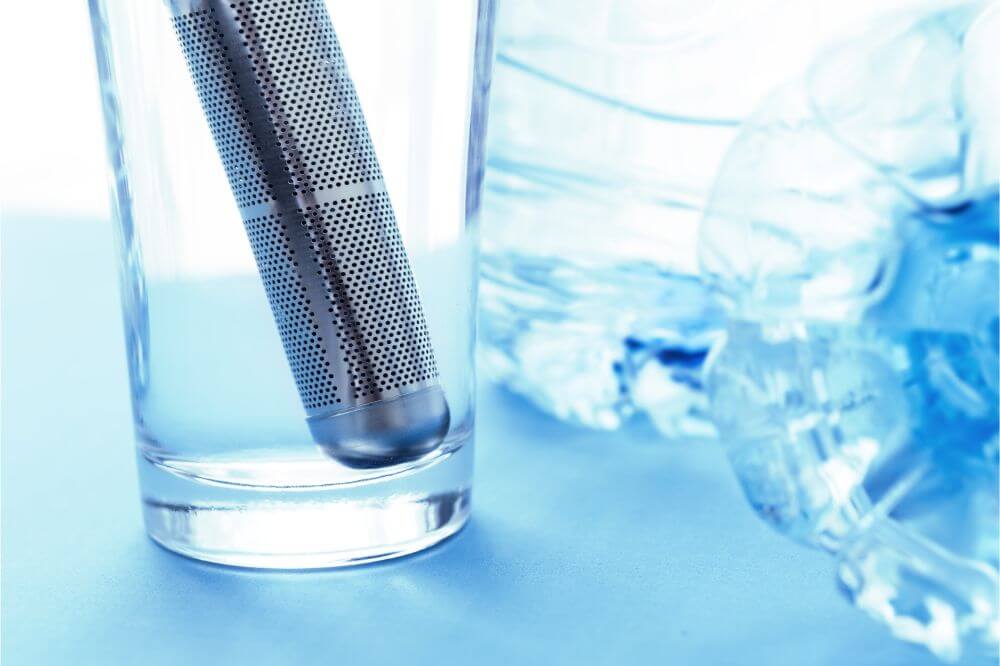If you own your home, one problem you may face is having a high iron content in your water supply. This can be quite an issue, and it’s true in more ways than one. Let’s discuss and answer the question do water softeners remove iron, how to remove it effectively, and more.
Detecting Iron in Your Water
Before we talk about water softeners and removing iron from water, how you detect iron is essential to know. In terms of the color, if the water is high in iron, expect red or brown stains to appear on laundry, dishes, and plumbing fixtures.
On an interesting side note, water with high quantities of iron will cause tea and potatoes to turn jet black.
In terms of the taste, you can expect water that is high in iron to have a very metallic taste, and it can cause foods cooked in it to have metallic tastes. The other way to detect iron in your water is because it will cause pumps, dishwashers, and other water-based devices to clog.
The Three Types of Iron
There are three iron types, which is essential to know because the kind of iron in your water will determine the best treatment method.
Ferrous Iron
Ferrous iron is also known as clear water iron and is characterized by how it comes out of the tap clear but then turns brown or red after standing around.
Ferric Iron
Ferric iron is also known as red water iron because it comes out of the tap red or brown.
Organic Iron
This kind of iron is usually yellowish-brown but may also be colorless. Shallow wells generally have this kind of iron.
Do Water Softeners Remove Iron?
The answer is both yes and no. The fact is that your typical water softener will remove a bit of iron from the water, but usually only in small quantities. On average, expect a standard water softener to remove about 4 to 6 parts per million.
Now, this is OK in some cases, but it depends on where you live. If you live in an area where the water is known for high iron content, such as 15 ppm, then an average water softener won’t remove enough to make a difference.
Water softeners that have to deal with too much iron will need to be regenerated and regularly backwashed, so be aware of how iron can impact water softeners. That said, if the iron level in the water is at 6 ppm or less, then a standard water softener will probably do just fine.

How to Treat High Iron Levels
Now that we know what the different types of iron are, how to identify them, and that water softeners usually are not the best course of action, let’s figure out how to remove those three types of iron from your water.
Clear Water Iron
For clear water iron AKA ferrous iron, the best removal method is a dedicated iron filter, something like a greensand filter.
We need to stress that water softeners are also a popular way to deal with this kind of iron, but remember that they will only work for water with relatively low iron levels because water softeners can only remove so much iron. They’ll often get clogged very quickly. Your best option is a dedicated iron filter. Reverse osmosis is another option.
Red Water Iron
Red water iron, AKA ferric iron, is a little bit easier to deal with because there are more removal methods. A dedicated iron filter should generally be enough for water that doesn’t contain over 15 ppm ferric iron.
However, suppose the water contains more red water iron than that. In that case, you will need to add either air injection or chemical oxidation (forms of aeration) to the mix, which will allow for faster and easier removal.
Consider getting good sediment and carbon filters, as both will remove small amounts of iron from the water. As you may have figured out by now, you may need several treatment methods to deal with high iron levels. Reverse osmosis may also be able to remove all red water iron.
Organic Iron
Organic iron is hard to remove from water. Iron filters, aeration systems, and water softeners won’t work well. The best option for this scenario is a combination of chemical oxidization and filtration, but reverse osmosis can work as well.
Conclusion
As you may have realized by now, for total iron removal in your water, you will most likely need to resorts to various treatment methods, with water softeners being effective only a small amount of the time.

